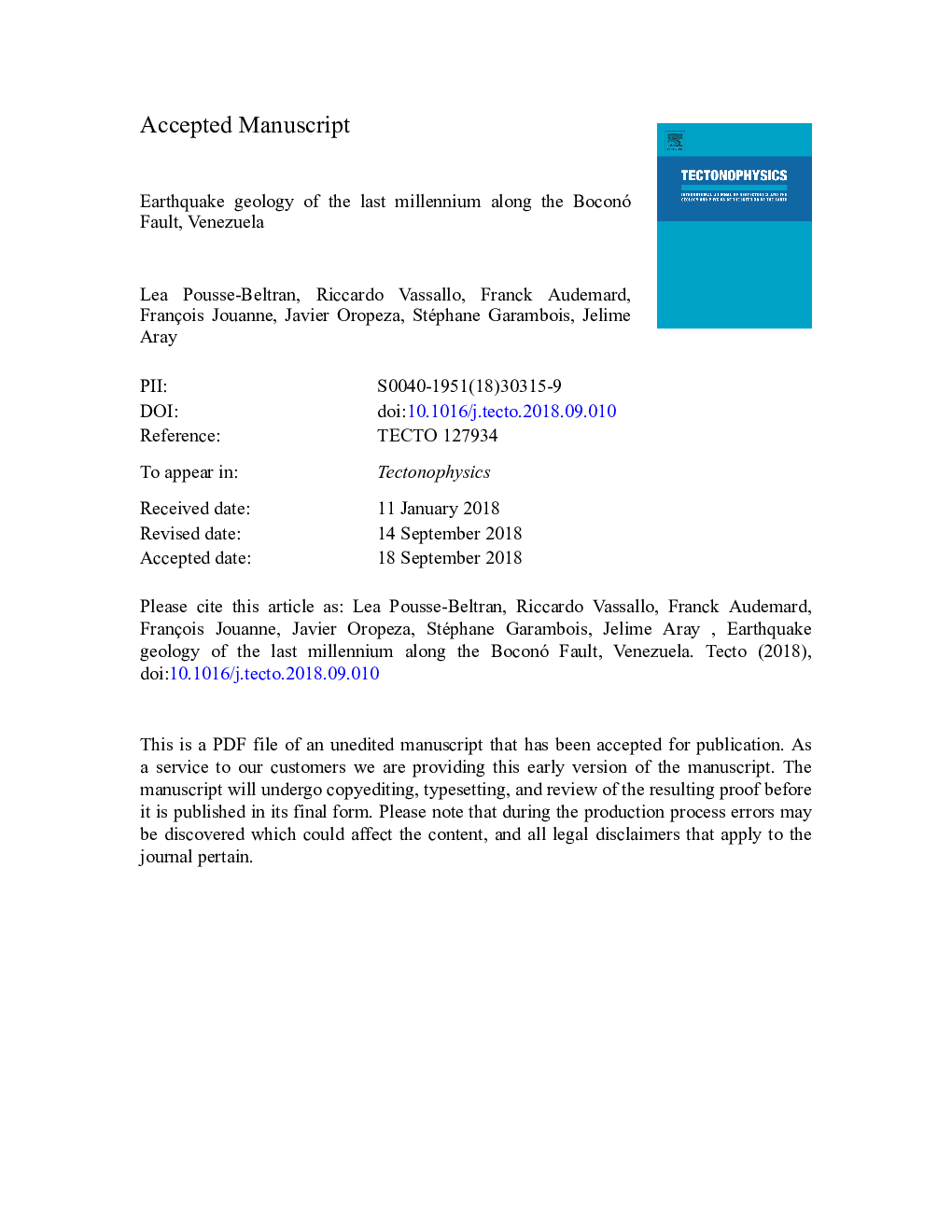| Article ID | Journal | Published Year | Pages | File Type |
|---|---|---|---|---|
| 10997905 | Tectonophysics | 2018 | 38 Pages |
Abstract
The Holocene tectonic activity of Latin American countries is poorly constrained because of the short time span of the instrumental record and the lack of any seismic calendar during pre-colonization times. Therefore, some areas with low and diffused seismicity have been catalogued as a “seismic gap”. It has been suggested that the northernmost segment of the Boconó Fault in Venezuela is one of these areas, although a recent MW 7.4 event that occurred in 1812 has been well documented by a historical investigation. In this study, we mapped the historical events triggered by the Boconó Fault using a paleoseismological investigation, a geological interpretation of high-resolution satellite images, field mapping as well as ground-penetrating radar (GPR) profiles at selected trench sites. Our results suggest that at least three seismic events had produced surface ruptures in the trench site based on the exposed trench stratigraphy as well as the results of radiocarbon dating and age models: i) a latest event (E3) that occurred between 1545 and 1825â¯CE, ii) a previous event (E2) that occurred between 1483 and 1743â¯CE and iii) an older event (E1 before 1456-1636â¯CE). The E3 event might correspond to the 1812 major earthquake. These results further support the fact that the 1812 event was triggered by the Boconó Fault and that the rupture reached the surface. The potential slip deficit along the studied segment ranges from 1.7 to 2.3â¯m and corresponds to Mw ~7, assuming that the 1812â¯CE earthquake released all of the strain stored earlier. As the time span between events E2 and E3 is short (<360â¯years), it is worth to pay a great attention to the seismic risk assessment for a densely inhabited Boc-e fault segment.
Keywords
Related Topics
Physical Sciences and Engineering
Earth and Planetary Sciences
Earth-Surface Processes
Authors
Lea Pousse-Beltran, Riccardo Vassallo, Franck Audemard, François Jouanne, Javier Oropeza, Stéphane Garambois, Jelime Aray,
